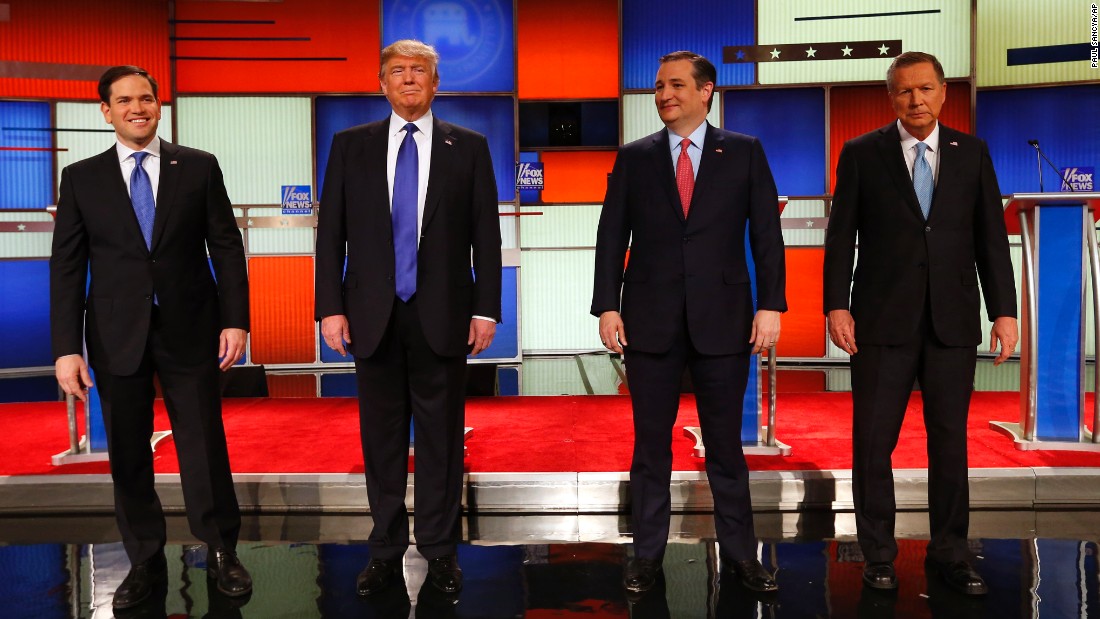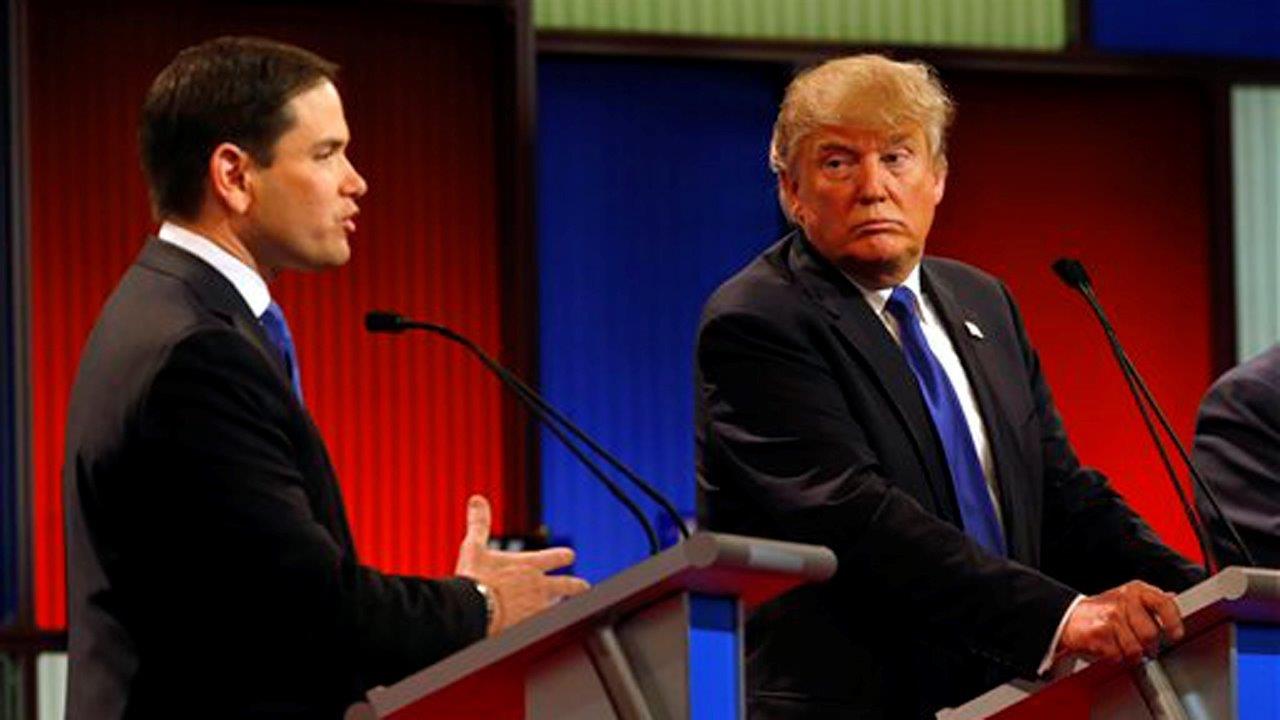The Fox Presidential Debate

The Fox Presidential Debate is a significant event in the American political landscape, offering a platform for candidates to engage in direct discourse and present their visions for the nation. This debate holds immense importance, as it provides voters with valuable insights into the candidates’ policies, personalities, and leadership capabilities. The debate’s impact extends beyond the immediate audience, shaping public opinion and influencing the trajectory of the election campaign.
The Historical Context of the Fox Presidential Debate
The Fox Presidential Debate is part of a long tradition of televised debates in American politics. The first televised presidential debate took place in 1960 between John F. Kennedy and Richard Nixon, and it is widely considered to have significantly impacted the outcome of the election. Since then, debates have become an integral part of the electoral process, offering voters a chance to see candidates interact and compare their positions on key issues. The Fox debate builds upon this legacy, offering a platform for candidates to engage in a lively and informative exchange of ideas.
The Potential Impact of the Debate on the Election
The Fox Presidential Debate has the potential to significantly impact the election in several ways. Firstly, it can influence voter perceptions of the candidates. A strong performance in the debate can boost a candidate’s standing in the polls, while a poor performance can damage their reputation. Secondly, the debate can shape campaign strategies. Candidates may adjust their messaging or focus on certain issues based on their performance in the debate and the responses of their opponents. Thirdly, the debate can generate significant media attention, which can further influence public opinion and the overall discourse surrounding the election.
Key Candidates Participating in the Debate
The Fox Presidential Debate will feature a diverse group of candidates representing various political ideologies and backgrounds. Each candidate brings unique strengths and perspectives to the table, offering voters a range of choices.
- Candidate A: A seasoned politician with a strong track record on economic issues, Candidate A is likely to emphasize his experience and his plans for job creation and economic growth.
- Candidate B: A progressive candidate with a strong focus on social justice issues, Candidate B is likely to highlight her commitment to healthcare reform, climate change, and racial equality.
- Candidate C: A moderate candidate with a focus on bipartisanship and compromise, Candidate C is likely to emphasize his ability to work across the aisle and find common ground on issues.
Media Coverage and Public Perception

The role of media coverage in shaping public perception of a presidential debate is significant. The media serves as a crucial intermediary, conveying information and shaping public discourse around the event. However, the potential for bias or spin in media reporting raises concerns about the accuracy and neutrality of information disseminated to the public.
Media Influence on Public Perception, Fox presidential debate
The media plays a pivotal role in shaping public perception of a presidential debate by framing the narrative and highlighting specific moments. News outlets often select certain soundbites, quotes, or moments to emphasize, potentially influencing viewers’ interpretations of the debate.
For instance, a news outlet might focus on a candidate’s gaffe or a particularly strong statement, while downplaying other aspects of the debate. This selective reporting can lead to a skewed perception of the candidates’ performances and the overall tone of the debate.
Potential for Bias in Media Reporting
The potential for bias in media reporting of presidential debates is a significant concern. News outlets may have pre-existing political leanings or agendas that influence their coverage. This bias can manifest in various ways, including:
- Selective Coverage: Choosing to highlight certain moments or issues while downplaying others that may favor a specific candidate.
- Framing: Using language or visuals that subtly favor one candidate over another, shaping the audience’s perception.
- Spin: Presenting information in a way that favors a particular narrative or interpretation.
The potential for bias is particularly relevant in the context of a highly polarized political environment. Audiences may be more likely to accept information that aligns with their existing beliefs, leading to a confirmation bias where they seek out media outlets that reinforce their views.
Social Media and Public Discourse
Social media and online platforms have become increasingly influential in shaping public discourse surrounding presidential debates. These platforms provide a space for real-time reactions, commentary, and analysis, fostering a dynamic and often intense exchange of opinions.
- Real-time Reactions: Social media platforms allow users to share their immediate reactions to the debate, creating a sense of shared experience and collective response.
- Spread of Information: Social media can rapidly disseminate information, including news reports, analysis, and user-generated content, potentially influencing public perception of the debate.
- Echo Chambers: Social media algorithms can create echo chambers, where users are primarily exposed to information that aligns with their existing beliefs, potentially reinforcing biases and limiting exposure to diverse perspectives.
The impact of social media on public discourse surrounding presidential debates is complex and multifaceted. While it offers a platform for diverse voices and real-time engagement, it also presents challenges related to the spread of misinformation, the formation of echo chambers, and the potential for online harassment.
The Fox presidential debate was a spectacle of heated rhetoric and political posturing, but one thing that truly caught my eye was the sheer number of attendees sporting those iconic red, white, and blue “Beetlejuice Beetlejuice” popcorn buckets. It’s a testament to the enduring cultural phenomenon that is beetlejuice beetlejuice popcorn buckets , a quirky symbol that transcends political divides and speaks to a shared love of cinematic nostalgia.
Perhaps the debate’s intensity could have benefited from a touch of that lighthearted spirit, reminding us that even amidst the serious business of politics, there’s room for a bit of fun.
The Fox presidential debate was a whirlwind of soundbites and political maneuvering, leaving viewers both entertained and bewildered. But amidst the chaos, it’s easy to forget that outside the realm of politics, other stars are rising. Take, for instance, Alex Highsmith , a linebacker making waves in the NFL.
His dedication and grit are just as compelling as any political campaign, reminding us that success comes in many forms, not just on the national stage. The Fox debate might be over, but the story of Alex Highsmith is just beginning.
